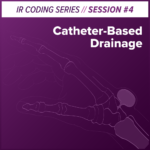Rule 9(b) of the Federal Rules of Civil Procedure states that, in all averments of fraud, such as allegations concerning the False Claims Act, (FCA) the circumstances constituting fraud or mistake must be stated with particularity.
This requirement goes beyond the general notice pleading standard found in Rule 8, which only requires a short and plain statement of the claim. Rule 9(b) demands specificity to ensure that defendants are adequately informed of the claims against them and can prepare a meaningful response.
In Jonathan Mayer v. ADCS, published October 4, 2024, a former employee faced off against a dermatology practice ADCS, who moved to dismiss the relator’s claims of upcoding and other fraudulent practices. The relator accused ADCS of the following:
- Upcoding from 99201 to 99202;
- Conducting medically unnecessary total body skin exams; and
- Violating Stark law
The court’s ruling illustrates the importance of specific allegations in advancing a case to discovery. In this case, the relator alleges that ADCS’s Medical Executive Committee sent a company-wide email instructing all ADCS providers to cease using a certain billing code (99201) reserved for new patient visits during which providers “conducted a problem-focused exam[ ] and used straightforward medical decision making.” Relator alleges that the elimination of this code resulted in providers billing at a higher code (99202)—one reserved for exams that involve six or more body areas or organ systems—even if a more comprehensive exam was not medically indicated. ADCS then allegedly submitted these upcoded (false) claims to the government.
The dermatology practice argued that the relator’s claim that it required providers to upcode new patient visits did not meet the stringent standards set forth in Rule 9(b). This rule mandates that fraud claims provide detailed factual backgrounds akin to the lead paragraph of a newspaper story—addressing the “who, what, when, where, and how” of the alleged fraud. The defendants contended that the relator failed to provide sufficient detail, as they merely “lumped together” various defendants and relied on vague group allegations. They claimed that the relator did not adequately describe the specific codes involved, the procedures performed, or whether any claims were actually submitted to Medicare.
The court, however, disagreed. It found that the relator’s allegations were sufficiently specific to proceed. For instance, the relator cited an email from ADCS’s Medical Executive Committee instructing providers to stop using the billing code 99201, which is reserved for basic new patient visits. The relator alleged that this directive forced providers to use the higher billing code 99202, even when the more comprehensive exam was not medically necessary. By detailing this internal communication and the consequences of the policy, the relator painted a clear picture of the alleged upcoding scheme.
ADCS also attempted to dismiss the relator’s claims regarding the performance of medically unnecessary total body skin exams. ADCS asserted that the relator did not provide particular details about these exams, including their necessity or how they led to increased billing.
In response, the court again found the relator’s allegations sufficient. The relator claimed that ADCS had an official policy requiring total body skin exams for all new patients, regardless of their medical conditions. For example, requiring a comprehensive exam for a 14-year-old with acne or a 98-year-old with dry hands illustrated a clear pattern of unnecessary testing. The relator’s review of medical records and submitted claims further substantiated the claim that these exams led to improper billing practices.
Finally, the defendants also sought to dismiss the relator’s claims under the Stark Law, asserting that the allegations lacked the necessary particularity. They pointed out that the relator failed to specify which referrals were involved, the nature of the financial relationships, and whether false claims were submitted.
Nevertheless, the court found that the relator adequately established a prima facie violation of the Stark Act. The relator alleged that ADCS dermatologists referred services to dermatopathologists within the same organization, thus engaging in self-referral prohibited under the Stark Law. This was compounded by claims that the organization required these self-referrals, raising serious legal concerns. The relator’s assertion that many thousands of pathology specimens were processed without claims submitted to Medicare added further credibility to the allegations.
Ultimately, the court ruled that the relator had pled sufficient detail to withstand the Defendants’ motion to dismiss and allowed the case to advance to the discovery phase. This outcome is significant as it emphasizes the importance of particularity in fraud claims under the FCA.
Whistleblowers must provide a detailed factual basis for their allegations, but as this case demonstrates, a well-structured narrative backed by specific examples can prevail even in the face of a motion to dismiss.
Programming note:
Listen live every Monday morning when healthcare attorney Knicole Emanuel broadcasts the “RAC Report on Monitor Mondays, 10 Eastern with Chuck Buck.













